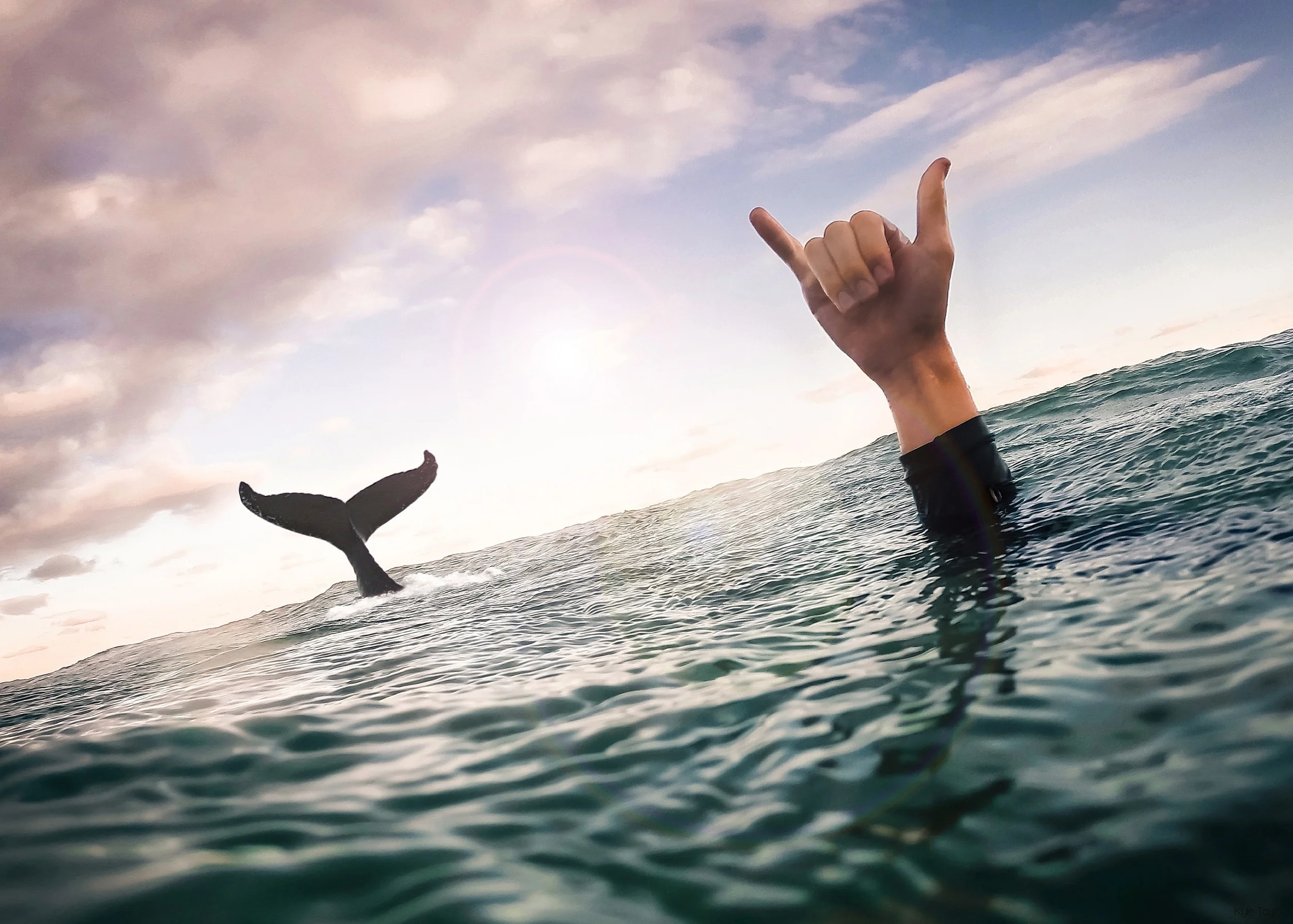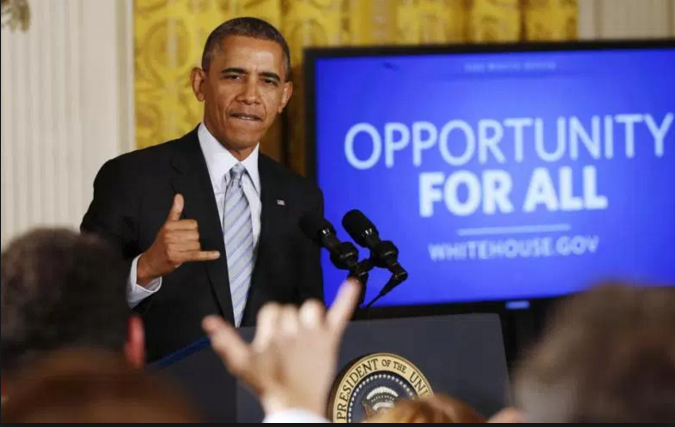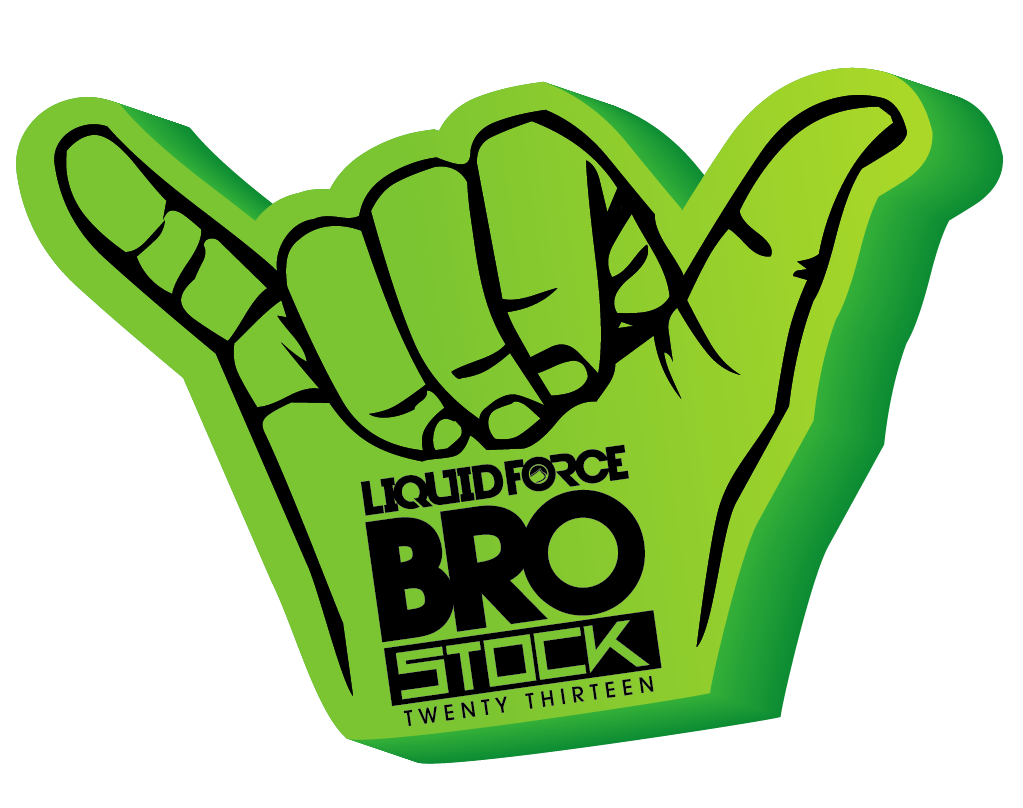What is "Shaka"?
What do you think it means? It's as common as the fist bump these days, and then again so is the love of board sports finally. What do you really want it to mean? We hope for the best when we see a smile, and likewise see a Shaka and expect the person to be positive. It seems to always be positive, now that I really think about it... but is that enough? At least its not the recent lackluster trend by people so pretentious to think anyone is attracted to their brazen attitude displayed with a middle finger, which let's us know how cool they are (I'm talking about you flipping off the camera, guess what... we still don't care – that you don't care, get over yourself). Surely this positive gesture of surfy island vibes can be explained.
We can begin by narrowing it down I suppose. Let's see, first off I am positive it has nothing to do with Shaka Zulu, nor that 80's Shaka-Khan song, so that I guess that narrows it down a bit. I also know that it has nothing to do with holding a canned soda, or as a way to measure how long your hand is. I know some of you just tried to measure your hand right now too. Hmm...What if it was a secret form of mind control – to get people to make you a sandwich? Right...that's not it either. I even read about a mini-shaka where you use only your thumb, index ad middle finger in a position that seems halfway through snapping your fingers. It's hard enough to do much less not take it for “a lazy person flipping you the bird.” So many odd tangents – Which IS it?
Thankfully Wikipedia breaks it down for us with a decent explanation. According to their online contributors, the Shaka sign, which is also many times known as “hang loose” seems to have it's roots in, and main associations to be with, Hawaii and Surf Culture. So very Hawaiian it seems, that even the guy on Hawaii 5-0 said he invented it. America by observation and history is a conglomerate of all cultures, and it would seem likely and natural that in the second half of the twentieth century, tourists brought the expression back from their first surf trips. Like carrier pigeons, the surfers then traveled with their new found aloha spirit to the ends of the globe.
We never hear about it, no pun intended, but deaf mutes even use it definitively in American Sign Language (ASL) to specifically refer to “Surfing” - so step away from the ledge...you're not out of your element Donny. It is directly tied to surfing... We're safe for the moment. We all certainly know how to do it too. I mean really? How hard can it be to just keep your pinky and your thumb out, and shake it all about – that's what it's truly all about. It's simply a gesture of positivity in our wave world, and we see it enough to know at least that much. Some people don't shake it and like to keep it low key, others throw it up in the air like they just don't care. Whatever you decide to do, just don't do it if you are in a kicking rocks mood, because you'll throw a wrench into our vibe and probably get a weird look or two. It is without a doubt a worldwide expression, and it requires no translation to realize that someone is happy, and are emoting that exact happiness in your very direction. The basic rule of thumb (and pinky) in most occasions is: In case of Shaka, chuck Shaka back.
From Hawaiian Roots to Mainstream Media
From what I have researched, it would seem by most accounts that it all started back in the day and back in Hawaii; and subsequently, via surf, has been most used by those who actually do attempt to hang loose whenever possible. How did it begin there? Where did they get it? Is the rumor true, that it perhaps began with the Spanish immigrants, offering the natives something to drink, using their universal hand signal for putting drink in mouth; with their thumb to the mouth and pinky in the air (oddly used by Russia & Australia as a signal for smoking a pipe)? Seems logical. So does the local Hawaiian folklore about an injured native. Is it really true then about Hamana Kalili, that very Hawaiian who lost his three folding fingers in a Hawaiian sugar mill? They say that kids adopted it later, after seeing his innovative gesture when he would use his “all clear” hand wave. Perhaps they began mocking it to each other to convey the “Aloha Spirit” - which still resonates on the islands today? Everyone there uses it for anything, from greeting someone to letting someone know how much you like something. It is just a good vibe, and it stuck firmly within the Hawaiian culture.
Eventually the Skaka made it over to the mainland. Californians picked it up quickly- keeping it to the "hang loose" mentality that seems to have permeated into our modern global surf culture. Shortly thereafter, and of course thanks to adrenaline seekers, it made its way into hang gliding and skydiving for the very same reasons of "hang ten" or "hang loose," beginning in the late 1960's. Onward it traveled as a form of expression, as surfers looked for those endless summers. Landing in Brazil in later 1970's and 80's it soon spread along the coast. Brazilians are great for adopting the positive messages in life and used it also in Jiu Jitsu. Due to the internet and global appeal of the martial art and the epic rawness of surfing it just kept on going- you get the point . .
Today it is everywhere and all over mainstream media. How can a positive gesture similar to the peace sign not be universal? Even President Obama rocks the Shaka!
President Obama, native Hawaiian, and big fan of saluting the "Shaka" (obamadiary.com)
Wakeboard company Liquid Force has embraced a Shaka as the symbol and logo for their annual have-fun-at-the-lake event and wakeboard competition called BROStock.
Liquid Force Bro Stock Shaka Logo (Liquidforce.com)
The hand gesture is very much a big part of the inland surf sports community from SUP racing events to wakesurfing competition. Americans want to embrace and be apart of the Aloha lifestyle. Boarders Mag contributor Jeramie Vaine knows just how it feels to be apart of the shaka movement within.
Jeramie Vaine, always embracing an "Aloha" vibe. Picture taken at the inaugural Bay to Bridge Paddle Race in Annapolis Maryland by Waxbeard Images
South Park Shaka Brah episode will make you laugh your ass off.
The basic rule of thumb (and pinky) in most occasions is: if you are waived with a shaka, waive one in return. Some people don't shake it and like to keep it low key, others throw it up in the air like they just don't care. Whatever you decide to do, just don't do it if you are in a kicking rocks mood, because you will throw a wrench into our vibe and probably get a weird look or two. It is without a doubt a worldwide expression, and it requires no translation to realize that someone is happy, and are emoting that exact happiness in your very direction.
By Sean Reavis




